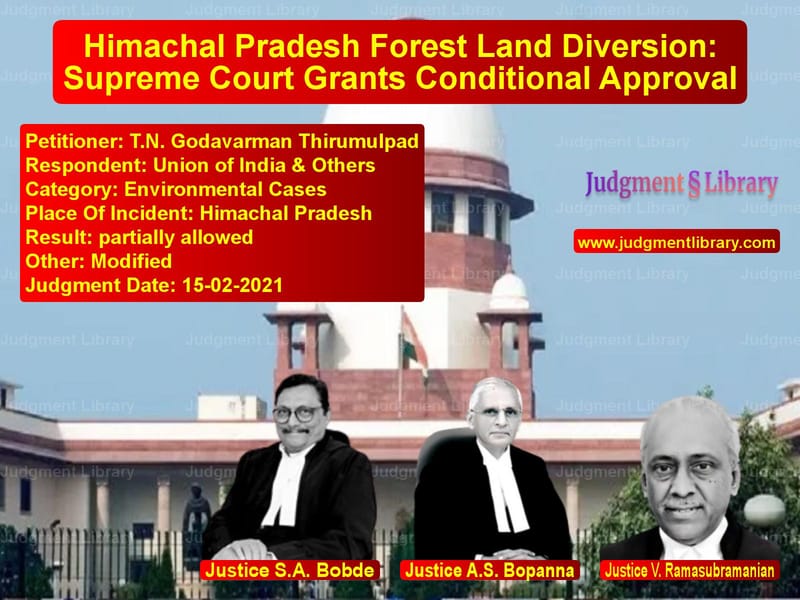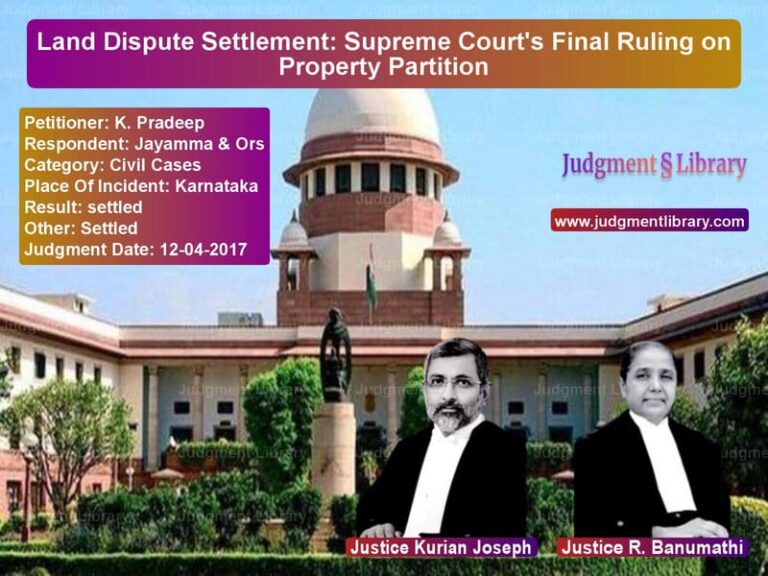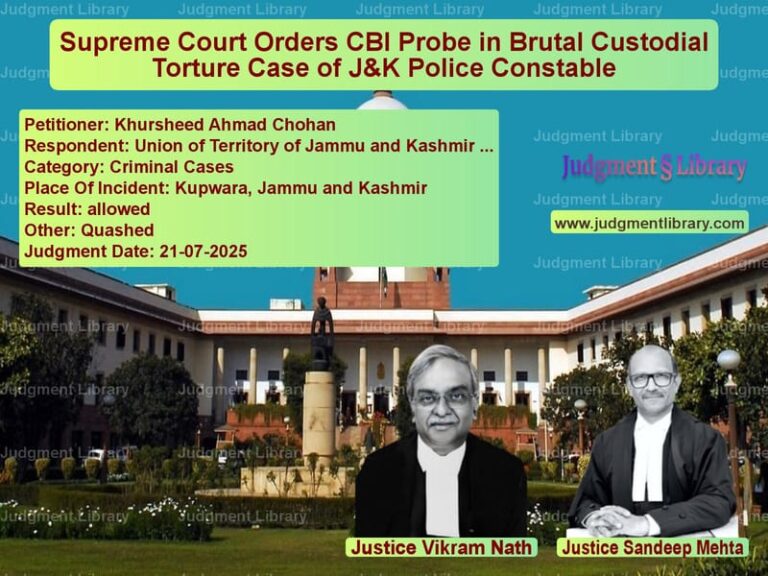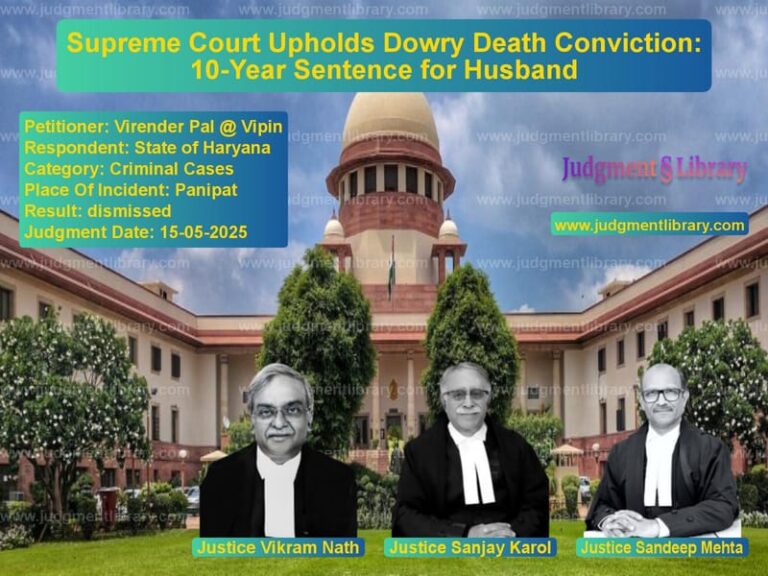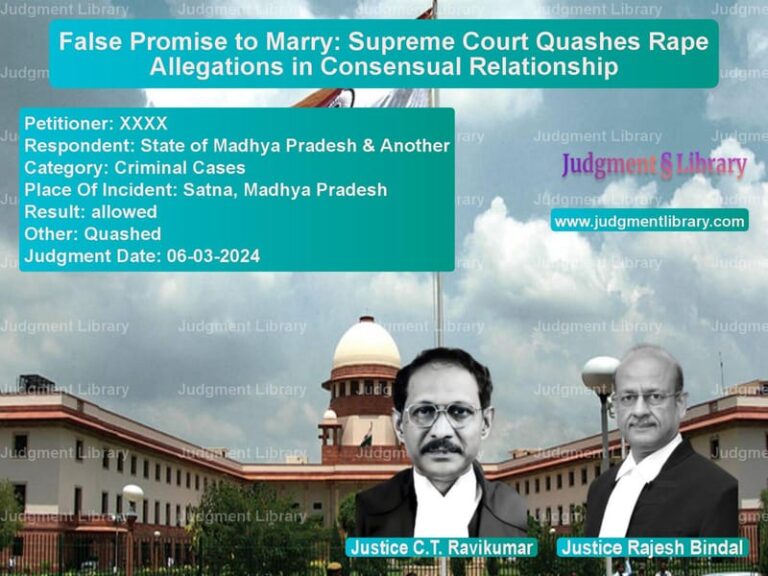Himachal Pradesh Forest Land Diversion: Supreme Court Grants Conditional Approval
The Supreme Court of India recently ruled in the case of In Re: T.N. Godavarman Thirumulpad vs. Union of India & Others, addressing multiple applications filed by the Government of Himachal Pradesh seeking clearance for the diversion of forest land for various public projects. The Court granted conditional approval to several projects while directing strict adherence to environmental regulations.
Background of the Case
The case originated from a series of interlocutory applications filed by the Himachal Pradesh government under the long-standing litigation in the T.N. Godavarman Thirumulpad matter, which deals with forest conservation across India. The applications sought permission for the diversion of small extents of forest land for critical public infrastructure projects, including:
- Construction of hydroelectric projects
- Road expansion and upgradation
- Educational institutions such as IITs and degree colleges
- Transmission lines and power substations
- Drinking water supply schemes
- Minor irrigation canals and other public welfare initiatives
Some of these projects had already received approval under the Forest (Conservation) Act, 1980 and the Scheduled Tribes and Other Traditional Forest Dwellers (Recognition of Forest Rights) Act, 2006, while others were pending clearance.
Petitioner’s (Himachal Pradesh Government) Arguments
The government, represented by the Solicitor General and the Advocate General of Himachal Pradesh, presented the following arguments:
- The projects were essential for the socio-economic development of the state.
- All necessary environmental clearances had been obtained for most projects, and additional conditions could be imposed where required.
- Delays in approvals were hindering infrastructure development and affecting public welfare.
- Silviculture felling (controlled tree cutting) should be permitted in designated forest areas to promote forest regeneration.
Respondent’s (Union of India & Amicus Curiae) Arguments
The respondents, represented by Amicus Curiae A.D.N. Rao, raised the following concerns:
- Some projects lacked the required approvals under the Forest (Conservation) Act, 1980 and the Forest Rights Act, 2006.
- The impact on tribal communities and traditional forest dwellers had to be thoroughly assessed before approving any diversion.
- Silviculture felling should be closely monitored to prevent indiscriminate deforestation.
- All approvals should be subject to stringent environmental safeguards.
Supreme Court’s Observations
The Supreme Court, comprising Chief Justice S.A. Bobde, Justice A.S. Bopanna, and Justice V. Ramasubramanian, made the following key observations:
- The diversion of forest land must comply with the provisions of the Forest (Conservation) Act, 1980 and the Forest Rights Act, 2006.
- Public infrastructure projects are crucial, but they must not come at the cost of environmental degradation.
- “If the permission of the Divisional Forest Officer (DFO) was granted prior to March 11, 2019, the project can be implemented. However, if the permission was not granted till March 11, 2019, the concerned DFO is allowed to process, examine, and decide the grant of permission, and if granted, such projects can be implemented and allowed to commence and complete.”
- Silviculture felling can be permitted only if it aligns with approved working plans and does not lead to large-scale deforestation.
Final Judgment
The Supreme Court issued the following directives:
- Approved Projects: Several projects, including hydroelectric plants, roads, IITs, and drinking water supply schemes, were granted clearance subject to compliance with forest laws.
- Conditional Approval: Some projects were permitted but required further scrutiny by the Divisional Forest Officer before implementation.
- Silviculture Felling: The matter was adjourned for 12 weeks to allow the appointed committee to examine the results of previous silviculture operations.
- Monitoring Mechanism: The Court directed the state government to ensure strict compliance with environmental safeguards and submit periodic reports.
The Court further stated:
“The final approvals are taken on record, and the government may act accordingly.”
Impact of the Judgment
The ruling has significant implications for forest conservation and infrastructure development:
- Balancing Development and Conservation: The decision ensures that infrastructure projects proceed while maintaining ecological integrity.
- Clarification on Forest Land Diversion: The ruling provides a clear framework for states seeking approval for public projects involving forest land.
- Strengthening Environmental Oversight: The Court reinforced the need for rigorous environmental clearances and compliance with forest protection laws.
- Guidance on Silviculture Felling: The ruling sets a precedent for regulating tree cutting in forests to ensure sustainability.
- Accelerating Infrastructure Projects: By granting conditional approvals, the judgment paves the way for timely execution of critical projects.
Conclusion
The Supreme Court’s decision in In Re: T.N. Godavarman Thirumulpad vs. Union of India & Others underscores the importance of balancing environmental conservation with developmental needs. By allowing critical infrastructure projects to proceed under strict environmental safeguards, the judgment ensures sustainable progress while protecting forest ecosystems.
This ruling serves as a landmark precedent for future cases involving forest land diversion and sets clear guidelines for states seeking approval for public welfare projects. It reinforces the principle that environmental laws must be followed diligently while enabling necessary development.
Petitioner Name: T.N. Godavarman Thirumulpad.Respondent Name: Union of India & Others.Judgment By: Justice S.A. Bobde, Justice A.S. Bopanna, Justice V. Ramasubramanian.Place Of Incident: Himachal Pradesh.Judgment Date: 15-02-2021.
Don’t miss out on the full details! Download the complete judgment in PDF format below and gain valuable insights instantly!
Download Judgment: t.n.-godavarman-thir-vs-union-of-india-&-oth-supreme-court-of-india-judgment-dated-15-02-2021.pdf
Directly Download Judgment: Directly download this Judgment
See all petitions in Environmental Cases
See all petitions in Public Interest Litigation
See all petitions in Legislative Powers
See all petitions in Judgment by S. A. Bobde
See all petitions in Judgment by A. S. Bopanna
See all petitions in Judgment by V. Ramasubramanian
See all petitions in partially allowed
See all petitions in Modified
See all petitions in supreme court of India judgments February 2021
See all petitions in 2021 judgments
See all posts in Environmental Cases Category
See all allowed petitions in Environmental Cases Category
See all Dismissed petitions in Environmental Cases Category
See all partially allowed petitions in Environmental Cases Category

